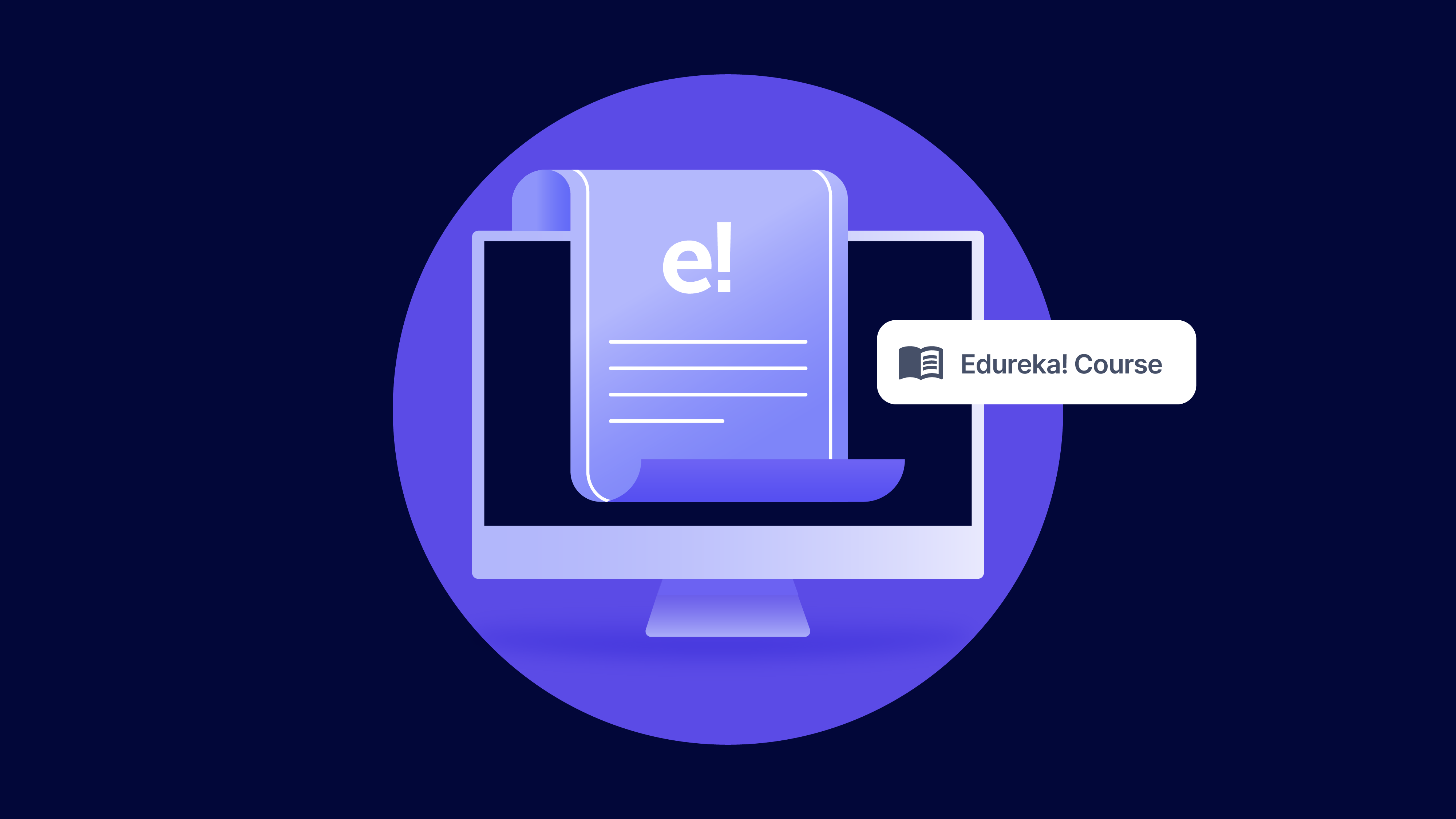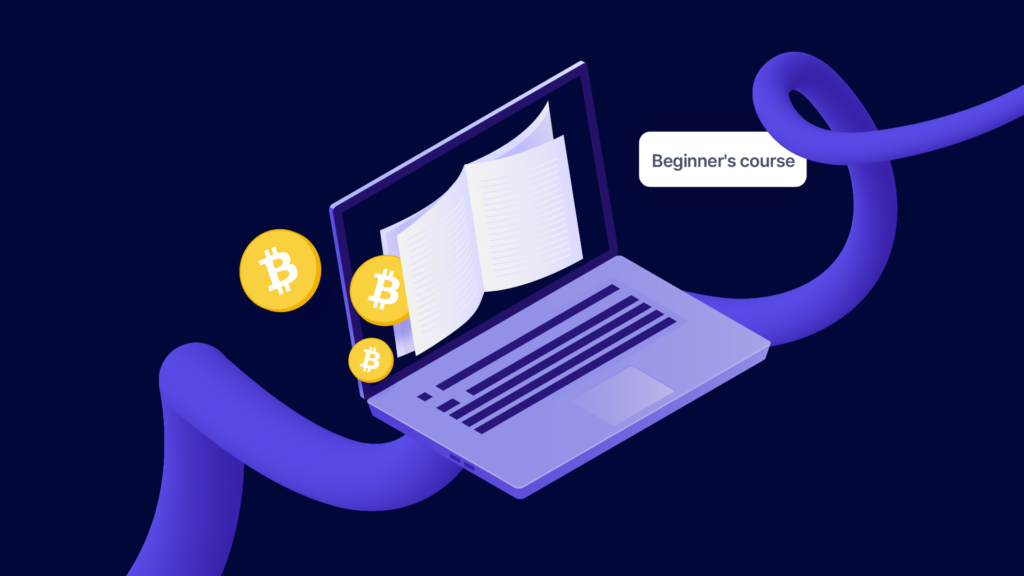
Accept crypto with CoinGate
Accept crypto with confidence using everything you need in one platform.
How to Learn Solidity Programming Language 2025? Learn Solidity Development

Learn the secrets of Solidity and discover how mastering this crypto contract programming language can elevate your career in the booming blockchain industry.
Solidity is a powerful programming language that was specifically designed for writing smart contracts on the Ethereum cryptocurrency platform.
Since its introduction, Solidity has become an essential skill for developers aiming to innovate and lead in the decentralized technology sector.
This article will provide a comprehensive guide on how to learn Solidity, explore its practical applications, and introduce a peer-led learning path with an Edureka! specialized course.
What is Solidity?
Solidity is specifically designed for developing and writing smart contracts on the Ethereum blockchain.
Here’s a breakdown of its key features:
- Statically-Typed: This means each variable type (such as integers, strings, etc.) is known at compile time, which helps catch errors early in the development process.
- Contract-Oriented: Solidity is structured around the concept of contracts, which are similar to classes in other programming languages. Each contract contains data (state) and functions (behavior).
- Created by the Ethereum Foundation: Solidity was developed by the team behind Ethereum, ensuring it is perfectly suited for building applications on the Ethereum platform.
Smart Contracts:
- Self-Executing: Smart contracts are pieces of code that automatically enforce and execute the terms of an agreement when predefined conditions are met.
- No Intermediaries: These contracts remove the need for middlemen, such as lawyers or banks, to oversee and enforce the contract terms.
- Enhanced Security and Transparency: Because the terms are written directly into the code and executed on the blockchain, smart contracts offer a higher level of security and transparency compared to traditional contracts.
In a nutshell, Solidity is the foundational language that enables developers to create decentralized, automated, and secure applications on the Ethereum network.
Why Learn Solidity?
High Demand for Blockchain Developers
The blockchain industry is not just growing—it’s exploding. With the increasing integration of blockchain technology across various sectors, there is a significant and rising demand for skilled developers who can create smart contracts and decentralized applications (DApps).
By learning Solidity and getting Ethereum blockchain certification, you position yourself at the cutting edge of this innovative field, opening up numerous career opportunities. The ability to develop secure, efficient, and transparent solutions makes Solidity developers indispensable, ensuring high job security and the potential for substantial earnings.
Innovation and Versatility
Solidity is a gateway to a world of endless innovation. As a Solidity developer, you can build a diverse range of applications that go beyond financial services. From revolutionizing supply chain management and transforming healthcare systems to creating immersive gaming experiences, Solidity allows you to harness the power of blockchain to solve real-world problems.
The decentralized nature of these applications enhances security and trust, fostering new levels of innovation and versatility that traditional technologies cannot match.
Lucrative Career Opportunities
Solidity developers are among the highest-paid professionals in the tech industry. The increasing adoption of blockchain technology has driven the demand for Solidity expertise to unprecedented levels.
As companies and startups rush to integrate blockchain into their operations, the scarcity of skilled Solidity developers has led to attractive salary offers and benefits.
The average salary for a senior Solidity developer ranges from $120,000 to $225,000 per year, with opportunities for additional earnings through token-based equity and stock options.
This makes learning Solidity a valuable skill and a highly lucrative career investment.
Is Solidity Hard to Learn?
A common question among prospective learners is, “Is Solidity hard to learn?” The answer largely depends on your background and experience with programming.
For Beginners
If you are new to programming, learning Solidity might initially seem daunting. The concepts of blockchain and smart contracts can be complex, and the syntax of Solidity may appear unfamiliar. However, beginners can overcome these challenges with dedication, persistence, and the right resources.
Many resources, such as tutorials, online courses – like the courses provided by Edureka! – and community forums, are designed to help newcomers.
With consistent effort, even those with no prior programming experience can grasp the basics of Solidity and start building simple smart contracts within a few months. The key is to stay motivated and practice regularly.
Alternatively, you might be more interested in cryptocurrency courses for beginners, which can help you ease into programming with Solidity.

For Experienced Developers
For those with a background in programming languages such as JavaScript, Python, or C++, learning Solidity will be much smoother.
Solidity’s syntax and structure have similarities to these languages, making the learning curve significantly less steep.
Experienced developers can leverage their existing knowledge to understand Solidity’s unique features and nuances quickly. With a solid foundation in programming, you can expect to learn the fundamentals of Solidity within a few weeks.
Achieving proficiency, where you can confidently write and deploy complex smart contracts, typically takes a couple of months of dedicated practice and exploration of advanced topics.
How Long Does It Take to Learn Solidity?
The time required to learn Solidity varies based on individual learning pace and prior experience.
However, with the right guidance and resources, you can accelerate your learning journey significantly. Edureka’s online Blockchain Developer Certification Course is designed to provide a structured and comprehensive learning experience, ensuring you gain proficiency efficiently.
Solidity For Beginners
If you are new to programming, it typically takes around 2-3 months of consistent study and practice to understand the basics of Solidity and start writing simple smart contracts.
Edureka’s course offers step-by-step tutorials, hands-on projects, and interactive sessions with industry experts to help you grasp the fundamentals. The course is structured to provide a gradual learning curve, making complex concepts accessible and easy to understand for beginners.
Solidity For Experienced Developers
For those with prior experience in programming languages like JavaScript, Python, or C++, the learning curve is much shorter. You can expect to learn the fundamentals of Solidity within a few weeks.
With the advanced modules and real-world projects included in Edureka’s course, experienced developers can achieve proficiency in Solidity within 1-2 months. The course leverages your existing knowledge and focuses on advanced topics and best practices, ensuring you can confidently write and deploy complex smart contracts.
Where to Learn Solidity Online: Learning with Edureka!
Edureka’s online Blockchain Developer Certification Course is designed to cater to learners of all levels. With structured lessons, expert guidance for recognized leaders in the field, and practical projects, you can master Solidity and embark on a successful career in blockchain development.
Enroll today and fast-track your journey to becoming a proficient Solidity developer.
Edureka’s Solidity Online Course: An Overview
Edureka’s Blockchain Developer Course is meticulously designed to provide a comprehensive and in-depth understanding of Ethereum smart contracts and the Solidity programming language.
Curated by top industry experts, this course meets and exceeds industry benchmarks, ensuring you gain the most relevant and up-to-date knowledge. Here’s a detailed overview of what the course entails:
Course Content:
- Edureka’s Solidity course offers a meticulously structured learning path, starting with a solid foundation in blockchain and Ethereum.
- You will begin by grasping the fundamentals of blockchain technology, understanding the unique features of the Ethereum platform, and learning about the critical role smart contracts play in the blockchain ecosystem. This foundational knowledge sets the stage as an introduction to the core of the course.
- Next, you will master the syntax, structure, and main concepts of the Solidity programming language. The course familiarizes you with the development environment and essential tools required for Solidity programming, ensuring you are well-prepared to start coding.
- The journey continues with a step-by-step guide to developing smart contracts. You will learn how to write, test, and deploy smart contracts on the Ethereum blockchain, focusing on creating resilient and efficient contracts tailored to various use cases. This practical approach helps you apply theoretical knowledge to real-world scenarios.
- As you progress, the course delves into advanced Solidity concepts, exploring inheritance, libraries, and complex data structures. You will also learn about security best practices, ensuring your smart contracts are defensive against attacks and vulnerabilities. This advanced knowledge equips you to handle more sophisticated projects and challenges.
- Hands-on projects are a crucial component of the course, providing practical experience that simulates real-world scenarios. These projects enable you to apply your knowledge and build functional and innovative decentralized applications (DApps), preparing you for real-world blockchain development.
- Throughout the course, you will gain a comprehensive understanding of Ethereum’s architecture and its various components, learning how Ethereum functions as a decentralized platform for applications. This knowledge is crucial for developing and deploying effective smart contracts.
- You will achieve proficiency in smart contract development, mastering the skills to write, test, and deploy secure and efficient contracts. The course also covers decentralized application (DApp) development, teaching you how to build fully-fledged DApps that interact seamlessly with smart contracts. You will learn to design and implement user-friendly and secure decentralized applications, ready to tackle real-world challenges.
- Finally, the course emphasizes security practices, helping you understand the critical security concerns in smart contract development. You will learn best practices to protect your smart contracts from vulnerabilities and attacks, ensuring the integrity and reliability of your blockchain solutions.
Edureka’s Solidity course provides a comprehensive, hands-on learning experience that prepares you for a successful career in blockchain development. By the end of the course, you will be equipped with the knowledge, skills, and practical experience needed to excel in the rapidly evolving blockchain industry.
Benefits of the Certification
A certification from Edureka! is widely recognized and respected in the industry, power-charging your resume and helping you stand out to potential employers.
This verified certification demonstrates your expertise and commitment, making you a more attractive candidate in the competitive job market.
A qualification from Edureka! opens up numerous career advancement opportunities, including roles such as Blockchain Developer, Smart Contract Developer, and DApp Developer. With the credentials and skills gained from this course, you will be well-equipped to advance your career in the rapidly growing blockchain industry.
Additionally, the course offers practical, hands-on experience through projects and assignments, ensuring you are well-prepared for real-world applications and challenges.
This practical training ensures that you are job-ready once you’ve completed the course, giving you a significant edge in the blockchain job market.
Important Solidity Concepts to Learn
Solidity ABI
The Application Binary Interface (ABI) is a set of rules that allows different pieces of software to interact with each other. In the context of Solidity, the ABI enables smart contracts to communicate with one another and with external software like wallets.
Smart Contracts
Smart contracts are self-executing contracts with the terms directly written into code. They are fundamental to creating decentralized applications on the Ethereum blockchain.
ERC20 Tokens
ERC20 tokens are a type of digital asset on the Ethereum blockchain. They are used to represent real-world assets and are the most common type of digital asset on Ethereum.
Contract Interface
Interfaces specify the functions a contract must implement, allowing for easy reuse and extension of contracts.
Inheritance
Inheritance allows developers to create child contracts that inherit code from parent contracts, promoting code reuse and simplifying maintenance.
Functions and Visibility
Functions are key components of Solidity contracts, executing specific tasks. Function visibility settings (public, external, internal, private) control who can see and execute these functions.
Call and Delegatecall Functions
These functions enable contracts to interact with one another, with delegatecall executing code in the context of the caller.
Modifiers
Modifiers are used to alter the behavior of functions, adding conditions or events without changing the core function code.
Arrays and Mappings
Arrays and mappings are data structures for storing and retrieving data within smart contracts. Arrays store elements of the same type, while mappings use keys for data retrieval.
Structs
Structs allow developers to create complex data types with multiple properties, enhancing data organization within contracts.
Events
Events trigger code execution when specific conditions are met, enabling interaction between smart contracts and real-world events.
Require (Error Handling)
The ‘Require’ keyword ensures conditions are met before executing functions, preventing errors and maintaining contract integrity.
Upgradeable Smart Contracts
Upgradeable smart contracts allow for updates without redeployment, ensuring ongoing functionality and security.
Proxy Contracts
Proxy contracts route function calls to updated implementations, maintaining static addresses for continuous contract functionality.
Multisig Contracts
Multisig contracts require multiple signatures for execution, adding security for significant transactions.
Reentrancy Attacks
Understanding reentrancy attacks and implementing protective measures is crucial for maintaining contract security.
Learning Solidity: Conclusion
Learning Solidity is a valuable investment for anyone interested in the blockchain and cryptocurrency space.
While it may seem daunting at first, with the right resources and dedication, you can master this powerful language and unlock numerous opportunities in the tech industry.
Edureka’s comprehensive course offers a structured and practical approach to learning Solidity, ensuring that you gain the knowledge and skills needed to excel in this field.
Whether you’re looking to develop smart contracts, build DApps, or advance your career, mastering Solidity is a crucial step toward achieving your goals.
Accept crypto with CoinGate
Accept crypto with confidence using everything you need in one platform.

